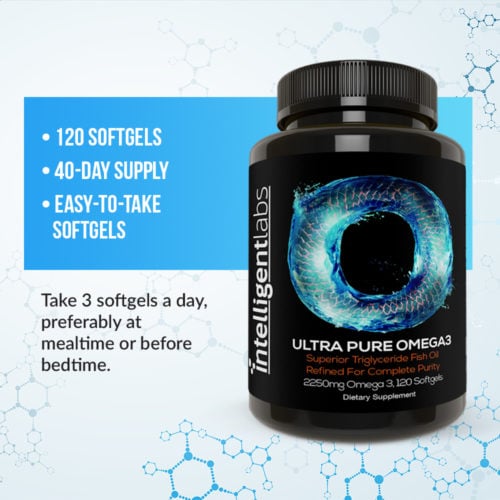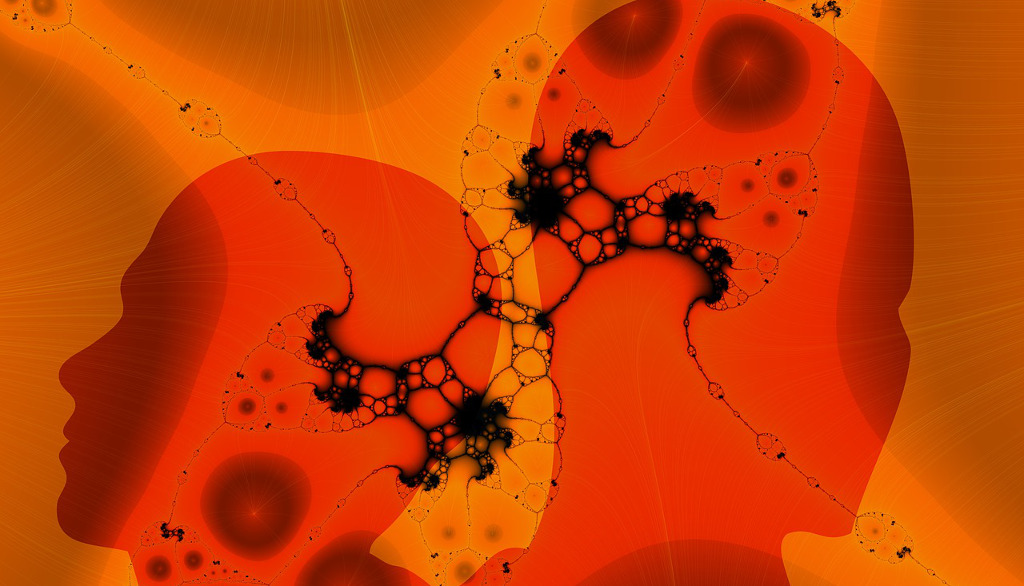Nutrition
How Omega-3 Helps Depression, Bipolar Disorder and Anxiety
Depressive and mood disorders are extremely common. These disorders are extremely varied in severity and treatment and causes are not entirely known. However, one strong theory suggests that the high rates of depressive disorders in the Western world could be attributed to a diet that is low in omega-3 fatty acids. So, let’s find out if Omega-3 can help with anxiety, depression, and bipolar disorder.
Table of Contents
Omega 3 and the Brain
Omega-3 and the brain are heavily linked. Up to 20% of the dry weight of the brain consists of fatty acids. So, it’s no surprise that omega-3 is essential for neurological function. As the control center of the body, the brain regulates everything. It sends signals to tell our bodies what to do and how to function properly. This includes signaling with neurotransmitters (hormones) to control our moods.
Our moods are the result of signaling in the brain, often triggered by external factors. But many times, the signaling is faulty due to genetics or other intrinsic malfunctions. Considering how much of our brains are made up of omega-3s, it’s not hard to see why omega-3 fatty acids could have an effect on how we feel.
Clinical Depression and Bipolar Disorder are two of the most well-known types of depressive disorders. Both of these are often found in combination with anxiety. Although these types differ from each other, omega-3 fish oil may be beneficial for controlling them both and helping anxiety.
Omega 3 and Depression

As the most common type of depressive disorder, clinical depression affects up to 20% of women and 10% of men at any one time. This disorder has a wide range of severity and duration because there are multiple suspected causes.
Genetics, environment, diet, and psychological factors can all contribute to the onset of depression. Yet, the most solid theory is that it’s caused by a chemical imbalance within the brain. There is a bit of a debate about which chemicals are involved and exactly how brain signaling is affected. But it’s mostly agreed that there is an impairment in the signaling.
Related article: What’s The Best Time To Take An Omega-3 Supplement?
The chemicals behind depression
It’s a bit ironic that the “happy hormones” serotonin and dopamine are the most likely suspects in depression. Both hormones are also neurotransmitters. They carry messages back and forth between nerve cells, giving the signals for certain functions. Both of these chemicals signal emotional responses, including happiness and a sense of well-being.
In depression, there is an interruption in the signaling. The chemicals can’t reach the cells. Or the levels may be too low, and they cannot send the correct signals at the rate they’re supposed to.
Omega-3 fatty acids can have an effect on this process by making the nerve cell membranes easier to penetrate. By “softening” the membrane, serotonin and dopamine can get into the cells and relay the message they are carrying. This can help lessen the symptoms of depression because it works to correct the signal impairment due to low penetration or low levels.
Omega-3’s effect on anxiety and depression
Scientific studies support omega-3’s effect on anxiety and depression. For instance, in an an 8-week trial on adults, depression symptoms decreased with the addition of omega-3 fatty acids. More specifically, the fatty acids Eicosapentaenoic acid (EPA) and docosahexaenoic acid (DHA). These are the two primary Omega-3s, with EPA being more effective than DHA.
But it’s not only the adults who may benefit from taking omega-3; even children do too! A 2006 study on kids aged between 6 and 12 responded positively to high-quality omega-3 supplementation. A few of the kids had such a significant decrease in symptoms that they met the requirements for remission!
Omega-3, lack of sleep, and depression
Another form of depression that is common is called Seasonal Affective Disorder or SAD. This mostly affects people in northern regions that experience a lack of sunlight during the autumn and winter months. The lack of sunlight can lead to a drop in both serotonin and melatonin levels.
Although not directly linked to depression, melatonin tells the body when to sleep and helps it stay asleep. Low levels can lead to a disruption of sleep patterns and even trigger bouts of insomnia.
Sleep and depression are very intertwined. Depression can cause sleeping problems, but sleeping problems can also cause depression. People who have frequent insomnia have a higher risk of developing depression. A drop in melatonin levels can have effects that will lead to depression, contributing to the onset of SAD.
However, it’s not a good idea to take melatonin supplements when depressed. Evidence shows that melatonin supplementation can worsen depression symptoms. It’s better to have melatonin produced naturally or intrinsically. A safe way to deal with lowered melatonin levels is by taking omega-3 supplements instead.
How omega-3 helps with sleep
A study by the University of Oxford in 2014 found that DHA regulated sleeping patterns in children. This indicates that DHA promotes the release of melatonin and plays a role in decreasing the chances of insomnia. Omega-3s also helps raise the levels of serotonin, battling the symptoms of SAD on a second front. DHA helps with melatonin but EPA has been shown to help with serotonin levels. In combination with vitamin B, a study showed that omega-3 regulated the release of serotonin as well.

Omega 3 and Bipolar Disorder (BPD)
This disorder is a type of depressive disorder, but depression is only one side of the coin. Those with bipolar disorder swing back and forth between extremes. It’s broken down into two basic phases: the manic phase and the depressive phase.
During the manic phase, the person can feel elated, energetic, or irritated. In worse cases, this can involve periods of psychosis. On the other end of the spectrum, the depressive phase carries all the symptoms of major clinical depression. It may also cause psychosis in severe cases.
Omega-3 deficiency may cause bipolar disorder, but supplementation may only help those with some symptoms of the disorder. Its mechanism of effect is similar to that of lithium carbonate and valproate, both considered effective for treating BPD.
So far, studies seem to indicate that omega-3 only helps those with symptoms of depressive phase. It appears to have little or no effect on the symptoms of the manic phase. The good news is that studies show reduced anxiety and depression symptoms in both adults and children. Because of this one-sided effect, omega-3 may work best when combined with standard treatment or when simply added into the diet.
Bipolar is a complex disorder with a range of symptoms. Even though omega-3 fatty acids only affect one phase, it is still a beneficial aid for helping to control the disorder.
Related article: 24 Omega-3 Fish Oil Benefits To Help Improve Your Life
Omega 3 and Anxiety
While not a depressive disorder on its own, anxiety often appears alongside depression. It is unknown if anxiety is a trigger for depressive episodes, a symptom of them, or both. Low serotonin levels may be linked to anxiety. This suggests that depression and anxiety may simply arise from the same causes.
In a 2011 study, omega-3 fish oil was able to lower anxiety symptoms in over-stressed medical students. It resulted in up to a 20% decrease in anxiety levels.
Another study on substance users replicated this anti-anxiety effect. Recovering substance abusers often have high levels of anxiety. The results of this study indicated that the fatty acid EPA was mainly responsible for the effect.
Conclusion
When it comes to depressive or mood disorders, omega-3 offers many benefits. As the studies have shown, it fights off symptoms in a few different ways. To conclude, adding Omega-3 to your diet may help with anxiety, depression, and bipolar disorder.







Fish oil raises blood calcium levels, and calcium lessens neuron excitability. With less neurons misfiring, mental symptoms will clear up.